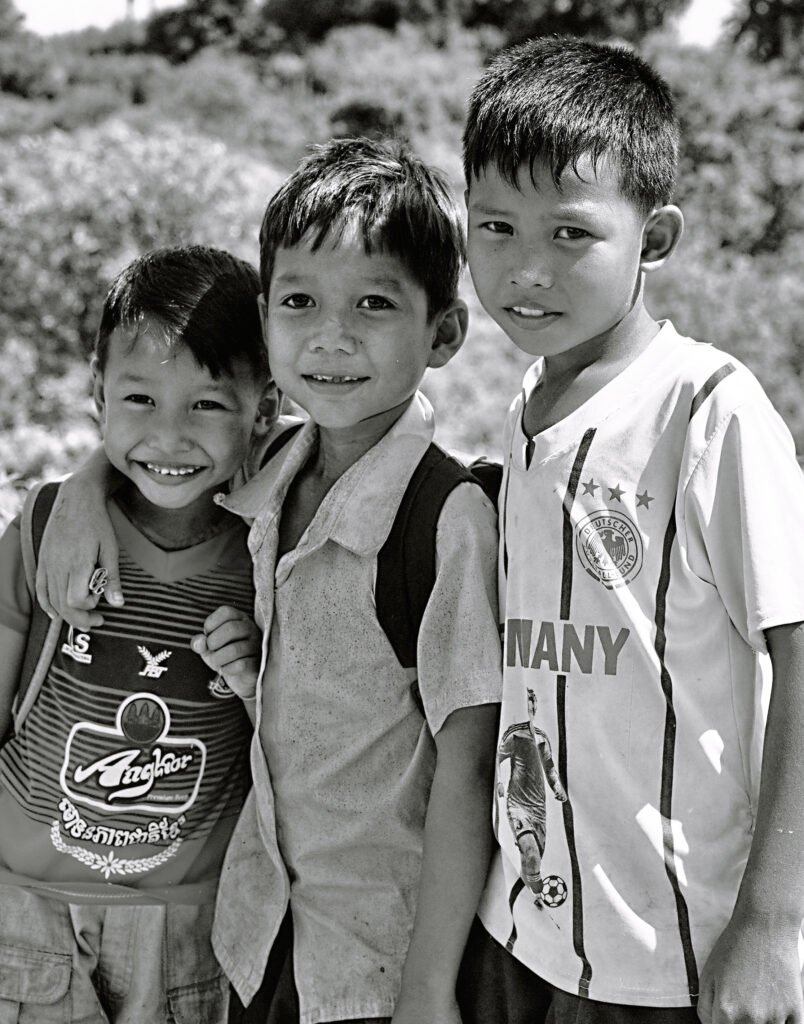
At Tonle Sap Lake, the water is not just water—it is road, schoolyard, and playground.
Every afternoon after the final bell rings—more a clang of iron than an actual bell—three schoolboys leap from the wooden steps of their floating classroom into the shifting light of the lake. Their uniforms are half-soaked, untucked, stained with river silt and joy.
Sokha is the tallest, already strong from mornings spent helping his father haul fishing nets before school. Dara is the clever one, always first with a joke or a game, his shirt collar forever askew. The smallest, Phirun, is quick-footed and quiet, with eyes that see everything, especially the movement of water, clouds, birds overhead.
Together, they are a constellation of youth—bound by the tides and the hours between responsibility.
They paddle in a leaky rowboat, laughter rising above the drone of distant motorboats. Sometimes they race plastic bottles as if they were dragon boats. Sometimes they climb the half-submerged trees, shouting pirate stories and daring one another to jump. Always, they move with the boldness of boys who do not yet know the weight of the world.
Around them, life goes on. Women wash pots in the water. A floating shop passes, selling candy and cooking oil. A man mends a fishing trap with calloused hands. But the boys are caught in their own current—of imagination, of freedom, of fleeting time.
Their school is small, with few books and a cracked chalkboard. Their homes are floating shacks lashed to bamboo poles, shifting with the season. They do not have internet, or new shoes, or walls that keep the rain out. But they have each other. And they have the lake.
Sometimes, as the sky burns orange and the air smells of wet wood and river grass, they sit together at the edge of a boat and talk about the future. Dara wants to be a teacher. Sokha dreams of building a bigger boat. Phirun stays quiet but smiles when they speak.
They know Tonle Sap is changing. That the water comes late some years. That fish are harder to find. That one day, they may have to leave.
But not yet.
Now, there are still afternoons like this—where the world feels wide and full of possibility, and the lake carries the sound of their laughter as gently as a cradle.